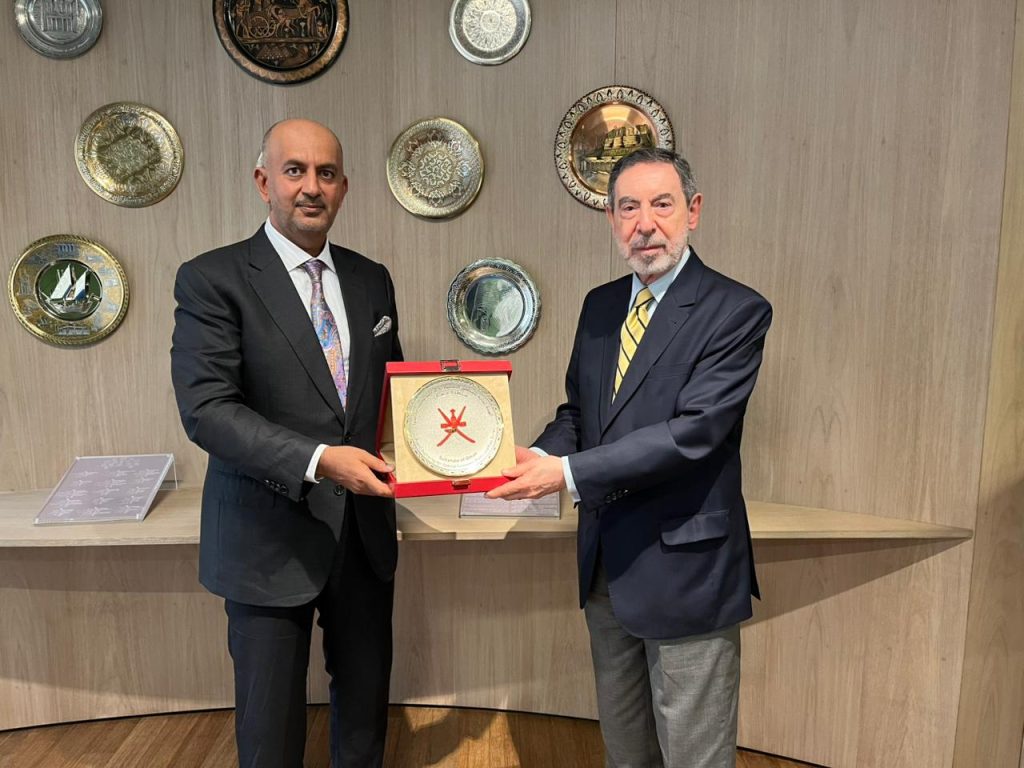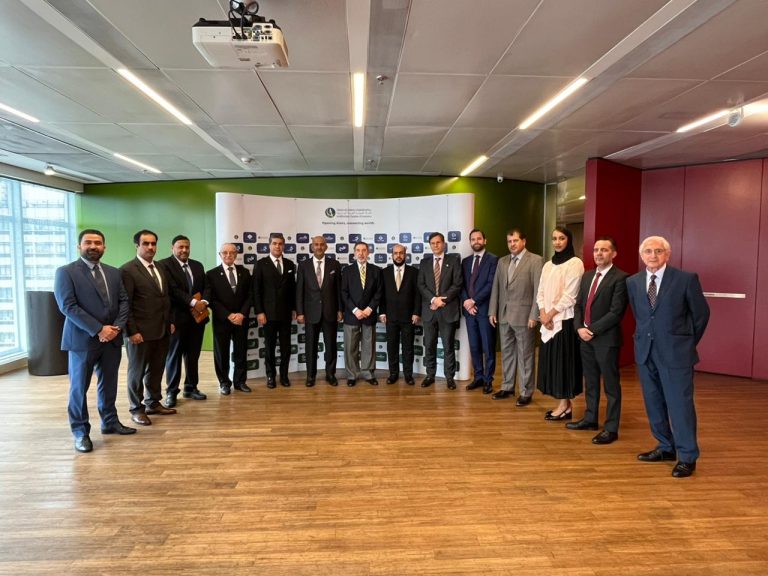São Paulo – The chairman of the Public Authority for Special Economic Zones and Free Zones of the Sultanate of Oman (OPAZ), Ali Masoud Ali Al Sunaidy, invited Brazilian companies from various sectors to operate in the country’s free zones during a meeting at the headquarters of the Arab-Brazilian Chamber of Commerce (ABCC) in São Paulo. During his visit to the country, Sunaidy met with Brazilian business leaders and visited the Federation of Industries of the State of São Paulo (Fiesp).
In his presentation, Sunaidy mentioned several examples of multinational companies operating in hte special zones of his country, from which they export to various locations. Among the benefits for companies operating in the tax-free areas are up to 30 years of income tax exemption, tariff exemptions for purchasing equipment and raw materials, and a strategic geographical location for export and re-export.

Sunaidy said his country offers opportunities in the medical equipment sector, particularly for those that use plastic, as Brazil has expertise in producing such equipment. He also mentioned the energy and food sectors, highlighting the possibility of storing and processing food in these free zones. Among Brazilian companies, only miner Vale has production facilities in Oman, specifically at the port of Sohar, which is a free zone. Iron ore is sent there, where it is processed and then resold.
“I’d like to see many companies using Oman as a distribution hub for Asia and the Arab world, but there is only one [Vale]. Another important area is pharmaceuticals. We know there’re many advancements in medicines and pharmaceuticals here [in Brazil],” he said. “We’d like to encourage Brazilian companies to come to Oman and invest in these areas. It’s important for us,” he said.
Oman provides fertilizers
ABCC President Osmar Chohfi and Secretary-General Mohamad Mourad said Brazil needs to buy more fertilizers, which are essential for food production. Currently, Chohfi said, Brazil produces only 15% of the total fertilizer needed for its crops.
Mourad mentioned there was an increase in fertilizer purchases from Arab countries shortly after the conflict between Russia and Ukraine began in February 2022, but this growth was not sustained. “We need companies that supply fertilizers so we can produce more food and export more to countries in need,” Mourad said. In 2023, Oman exported USD 675 million worth of products to Brazil, of which USD 560 million were fertilizers. Brazil, in turn, exported USD 1.1 billion, mainly in iron ore and meat.
At the meeting, ABCC Director of Institutional Relations Fernanda Baltazar, presented the activities carried out by the institution, as well as the main products on the trade basket between the two countries. From the ABCC, the meeting was attended by Vice President of Communication and Marketing Silvia Antibas, Vice President of Foreign Trade William Adib Dib Júnior, Treasurer Director Nahid Chicani, Board Members William Atui and Arthur Jafet, and Institutional Relations Advisor Bassel Abou Latif.
The Omani delegation consisted of the ambassador of Oman to Brasília, Talal Al Arahbi; the CEO of the Special Economic Zone of Duqm (SEZAD), Ahmed Akaak; the CEO of the Salalah Free Zone, Ali Tabouk; the CEO of the Duqm Port, Reggie Vermeulen; the Investment Promotion Manager at OPAZ, Amna Al Sharji; the General Manager of the Sohar Industrial City, Abdullah Al Mayyasi; the General Director of the Investment Development at OPAZ, Said Al Quraini; and the ambassador’s advisor, Zouhair Berhili.
Read more:
Oman imports products at lower prices
Translated by Guilherme Miranda




